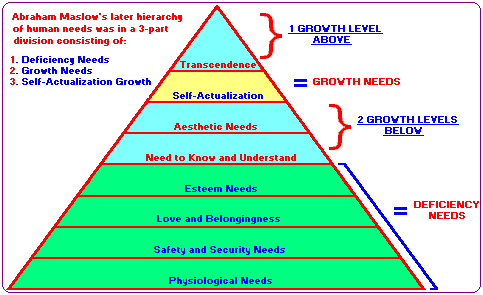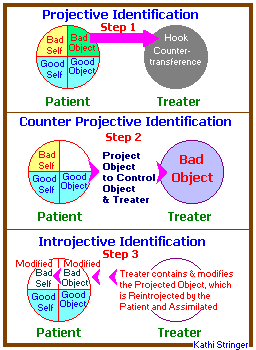 |
Threesological Examples (Three-patterned occurrences in Philosophical perspectives) Page III |
 |
(The Study of Threes)
http://threesology.org
3 major periods of Western thought--namely, the classical, the medieval, and the modern, are felt to be the best introduction to philosophy for an undergraduate in philosophy.
3 major schools are delimited and defined in Philosophy today: Analytic philosophy~ Existentialism & phenomenology~ Speculative (or traditional philosophy).
For additional information, 2 related links are provided:
http://www.fairfield.edu/academic/artsci/majors/philosop/ugphdept.htm
--- "The Core" ---
3 basic positions concerning man's choices:
- Determinism- The
belief that man's actions are the result of antecedent causes has been
formulated naturalistically and theistically. The naturalistic view sees
human beings as part of the machinery of the universe. In such a world
every event is caused by preceding events, which in turn were caused by still
earlier events, ad infinitum. Since man is part of this causal chain, his
actions are also determined by antecedent causes. Some of these causes
are the environment and man's genetic make- up. These are so determinative
of what man does that no one could rightly say that a given human action could
have been performed otherwise than it in fact was performed. Thus,
according to determinism, Bob's sitting on the brown chair rather than the blue
sofa is not a free choice but is fully determined by previous factors.
A philosophical argument often given for determinism can be stated as follows: All human behavior is either completely:
- uncaused,
- self-caused,
- caused by something external.
If naturalistic determinism were true, it would be:
- self defeating,
- false,
- be no view at all.
- Indeterminism- This view contends that human behavior is totally uncaused. There are no antecedent or simultaneous causes of man's actions. Hence, all of man's acts are uncaused; hence, any given human act could have been otherwise. Some indeterminists extend their view beyond human affairs to the entire universe. In support of the indeterminacy of all events Heisenberg's principle of uncertainty is often invoked. This principle states that it is impossible to predict where a subatomic particle is and how fast it is moving at any given moment. Thus, it is argued, since subatomic events are inherently unpredictable, how much more so are complex human acts. From this they conclude that human and nonhuman events are uncaused. Two noted exponents of indeterminism are William James and Charles Peirce.
- Self determinism On this view a person's acts are caused by himself. Self determinists accept the fact that such factors as heredity and environment often influence one's behavior. However, they deny that such factors are the determining causes of one's behavior. Inanimate objects do not change without an outside cause, but personal subjects are able to direct their own actions. As previously noted, self determinists reject the notions that events are uncaused or that they cause themselves. Rather, they believe that human actions can be caused by human beings. Two prominent advocates of this view are Thomas Aquinas and C S Lewis.
Christianity is at least three things:
- A set of beliefs
- A way of life
- A community of people
3-part growth to Abraham Maslow's Hierarchy of Needs:

- 3 pre-Socratics made their home in Abdern, Thrace (Northern Greece): Leucippus ~ Democritus ~ Protogoras.
- 3 "rational" forms of Adam de Wodeham (1295- 1358): Rational Cosmology ~ Rational Psychology ~ Rational Theology.
- 3 recognized divisions of the (B.C.) Hellenistic period of philosophy: Ethics ~ Logic ~ Physics.
3- part philosophy system of the (English as a Second Language) English Village:

3 part goal to an Holistic Resource Management (HRM) philosophy that is largely the creation of Allan Savory:
- A desired quality of life, which involves core values.
- The forms of production that will sustain that quality of life and those values.
- The future resource base needed to sustain such production.
Example:
3 parts to "The Ongoing Conversation" of Philosophy:
- The Setting- The conversation produced by the various texts.
- The Plot- The search for wisdom.
- The Theme- What endows human life with meaning.
(Philosophy literally means the love of wisdom. The word philosophy comes from the Greek words philein, meaning to love, and sophia, meaning wisdom. It is the pursuit of wisdom about what it means to be a human being, what the fundamental nature of reality is, what the sources and limits of our knowledge are, and what is good and right in our lives and in our societies.)
3-part philosophy of WinDough banner advertising:
- We reward users for their time with a chance to win. This means consumers will enjoy our site because they can play an entertaining game and also win cash and prizes.
- We benefit advertisers by delivering players directly to their advertising message. We put our player's eyeballs on the banner of their website by making ads our content. With the exception of Cybergold and MyPoints, very few sites do this well.
- We increase user response by limiting the number of options. When using a search engine like Yahoo you are bombarded with thousands of links. The experience can be overwhelming.
3-part philosophy of NASA during an era of tighter budgets for Space projects: "Better ~ Faster ~ Cheaper".
3 separate times, the first Space probe failed but its duplicate saved the day, during the Sixties and Seventies, when the U.S. would launch duplicate spacecraft on its planetary missions. (The Soviets carried this philosophy even farther, sometimes launching three probes at a time -- and, once, four!).
3-part analysis of non-natural meaning by Herber Paul Grice: A (an agent) meant something (non-naturally) by x (an utterance or gesture) if and only if A intended the utterance or gesture x to produce some effect in an audience by means of the recognition of this intention.
3 characteristics which individually describe most existing theories of consciousness:
- They deny the phenomenon.
- They explain something else.
- They elevate the problem to an eternal mystery.
3 basic steps to successful programs of intelligence systems used by companies:
Step #1: Prepare the organization
- Observation #1: You're Bigger than CNN
- Observation #2: Intelligence Never Travels in a Straight Line
- Adopting the Three Part Philosophy
3 immutable principles guide any successful intelligence system or program:
- A. Constancy
- B. Longevity
- C. Involvement
...~ Create a Ringmaster ~...
Step #2: Motivate the troops
Step #3: Store and deliver the intelligence
3-month Beyond War (1982-1991) project was embarked on to produce a concise statement about a new way of thinking which would address the growing realization that nuclear weapons are only a symptom of the real problem. Thus the Beyond War Statement evolved and became the cornerstone of the movement. With the basic philosophy of the movement defined, the Beyond War Orientation (a three-part course) was developed as a way to communicate the nature of both the crisis and the solution.
| 3-part (3 in 1) t'aeguk symbolizes
heaven, earth and humanity. Each part is separate but
the three parts exist in unity and are equal in value. As the Yin
and Yang of the Supreme Ultimate merge and make a perfect circle, so do
heaven, earth and humanity create the universe. Therefore the
Supreme Ultimate and the 3-part T'aeguk both symbolize the universe. |

|
3-part modes of operation in various Psychotherapies:
| Type of Psychotherapy |
Insight? Action? Both? |
Directive? Non-Directive? Both? |
Time orientation: Past? Present? Future? |
Individual? Group? Both? |
| Psychoanalysis | Insight | Directive | Past | Individual |
| Short-term dynamic | Insight | Directive | Past and Present | Individual |
| Client-centered | Insight | Non-directive | Past and Present | Individual |
| Existential | Insight | Both | Present and Future | Individual |
| Gestalt | Insight | Directive | Present | Both |
| Transactional analysis | Both | Directive | Past and Present | Both |
| Psychodrama | Insight | Directive | Present | Group |
| Family | Both | Directive | Present | Group |
| Behavior modification | Action | Directive | Present | Both |
| Cognitive | Action | Directive | Present | Individual |
| Rational-emotive | Action | Directive | Present | Individual |
3 possible modes of thinking:
- Pathological thinking does not see itself. When it starts to see itself, it dissolves, like a witch in water. Pathological thinking is mixed with emotion, and it is the (unrecognized) emotion that directs it.
- Logical thinking works without emotion. It works by comparison, yes or no, either/or. It seeks conclusion, decision between two opposing choices. It is impartial, non-subjective. It works like a computer, composed of bits, dissecting but never understanding.
- Psychological thinking is intellect in harmony with emotion. It is aware of itself. When that awareness vanishes, so does the cooperation of thought and feeling. Thought then becomes logical, pathological, or disappears entirely.
Psychological thinking can be inductive or deductive, logical thinking is inductive, and pathological thinking is only destructive.
3 types of Attachments:
- Secure: These are people who had a loving childhood, and were well cared by their mothers. Secure people do not avoid people, and at the same time, do not feel the need to be constantly dependent on other people.
- 2. Avoidants: These are people who has been constantly denied any physical contact by their mothers when they were infants. Avoidants tend to express behaviour of detachment.
- Anxious/Ambivalent: These are people who as infants had mothers who were slow and inconsistent to respond to their cries. Anxious/Ambivalents tend to express feelings of protest, and are very distrustful of others.
Attachment Theory when applied to adult love
| Secure | Anxious/Ambivalent | Avoidant | |
|---|---|---|---|
| Hypothesis 1 | Approximately 62% of adults in our society are secure. | Approximately 23% of adults in our society are avoidant. | Approximately 15% of adults in our society are anxious/ambivalent. |
| Hypothesis 2 | Secure adults would have love experiences based on trust, friendship and positive emotions. | Avoidants adults would endure love experiences based on fear of closeness, and lack of trust. | Anxious/ambivalent adults would find love experiences to be a tedious and desperate struggle to find an elusive romantic bliss. |
| Hypothesis 3 | Secure adults would tend to believe in long-lasting relationships. They would be able to trust other people, and | Avoidants would question the possibility or durability of romantic love. They would also tend to believe that they do not need a love partner to be happy. | Anxious/Ambivalents would tend to fall in love easily and quickly. However, they would have a hard time finding what they can consider as true love. This feeling may also originate from a tendency of having self-doubt. |
| Hypothesis 4 | Secure adults should remember their mothers as being responsible and caring. | Avoidants should remember their mothers as being unloving and cold. | Anxious/ambivalents should remember spending some positive as well as negative experiences with their mothers. |
| Hypothesis 5 | Secure adults should not experience a constant feeling of vulnerability or loneliness. | Avoidants may experience a feeling of vulnerability or loneliness, but they will tend to hide these feeling by emotionally detaching themselves from their surroundings. | Anxious/ambivalents would be most susceptible to loneliness, and would suffer from a constant feeling of vulnerability. |
3 types of Severe Mental Disorders:
- Schizophrenia--hallucinations, delusions, bizarre thought patterns. (1.5 percent)
- Affective (mood) disorders--major depression (1.1 percent), manic-depressive illness (1.0 percent)
- Anxiety Disorders--Obsessive-compulsive disorder (0.6), phobias, panic disorder (0.4), post-traumatic stress disorder
3 types of love:--- Passion~ Intimacy~ Commitment
3 Types of Love
- Companionate love---relationship based on intimacy and commitment but not passion
- Consummate love---combination of intimacy, passion, and commitment
- Romantic love
3 to 1 ratio of the types of conditioning:
- 1 of 3. Simultaneous Conditioning-
Example: An US (unconditional stimulus) meat and the CS (conditional stimulus) bell are presented to a dog at the same time. - 2 of 3. Delayed Conditioning-
Example: The (CS) bell is presented to a dog before the (US) meat. While the two stimuli are not simultaneous, there is always some point in time when both are occurring. - 3 of 3. Trace Conditioning
Example: The (CS) bell is presented to a dog stops before the (US) meat is presented. The two stimuli are not simultaneous, there is some period of time between the two. Pavlov reported delays between the CS and the US ranging from a few seconds to one or more minutes. Recent results (probably using better timing devices than Pavlov had) seem to indicate that one-half (0.5) seconds produces the largest CR (conditional response). However, this has been shown only for shock and finger withdrawal. - 1 of 1. Backward Conditioning-
(This is considered a circumstance that may not actually happen at all.)
Example: The (CS) bell is presented to a dog after the (US) meat is withdrawn. The two stimuli are not simultaneous and there is no point in time when both are occurring. There is some likelihood that this never occurs but that the US sensitizes the salivation reflex and nearly any extraneous stimulus will do.
3 types of influence: Conformity~ Compliance~ Obedience
| Type of Influence | Definition | Factors which increase |
|---|---|---|
| Conformity | Unspoken group pressure - real or imagined | Situational ambiguity |
| Unanimity of other in group | ||
| Size of Majority | ||
| Gender | ||
| Compliance | Behavior change as the result of a direct request | Foot-in-the-door |
| Door-in-the-face | ||
| Low-ball | ||
| Obedience | Change in response to a demand from an authority figure | Prestige |
| Presence of others who disobey | ||
| Personality characteristics |
3 Types of Control
- Coercion: Oldest, but has many problems.
- If people have resources, they'll fight back or escape
- If rewards for staying, will give exact compliance
- Otherwise dull compliance and passive resistance
- Material Rewards: Tie pay to performance.
- Compliance only to extent that rewards are linked to behavior
- Results in a greater emphasis on money, greater materialism, and the manipulation of the system of measurement
- Normative Control: Hearts and minds.
- Identification with the organization: Giving orders in the name of the organization and proving loyalty to get authority
- Get commitment through social rituals; shared presence as equals, competition with outsiders, informal groups, hazing
- These rituals require considerable investment of resources and time
3 interrelated and overlapping components of Kathi Stringer's object relations model:
- Projective Identification.
- Projective Counter Identification.
- Introjective Identification.
by Kathi Stringer

--- Kathi's Mental Health Review ---
Triangular philosophy of YMCA: Developing healthy spirit, mind and body and aims to provide a high quality, fun and focused learning environment for all its participants.
Related Resources: Triadic Reciprocal Causation
What Is Reciprocal Causation? eHow.com - When two events influence other results of interaction based on Neal Miller and John Dollard's triadic reciprocal Triadic reciprocal causation facts Factolex - the fact lexicon - Triadic reciprocal causation -- a term introduced by Albert Bandura to refer to the mutual influence between three sets of factors. fact lexicon with terms going
As an example, Bandura's reciprocal determinism could occur when a child is acting out in school. The child doesn't like going to school; therefore, he/she acts out in class. This results in teachers and administrators of the school disliking having the child around. When confronted by the situation, the child admits he/she hates school and other peers don't like him/her. This results in the child acting inappropriately, forcing the administrators who dislike having him/her around to create a more restrictive environment for children of this stature. Each behavioral and environmental factor coincides with the child and so forth resulting in a continuous battle on all three levels.
Reciprocal determinism is the idea that behavior is controlled or determined by the individual, through cognitive processes, and by the environment, through external social stimulus events. The basis of reciprocal determinism should transform individual behavior by allowing subjective thought processes transparency when contrasted with cognitive, environmental, and external social stimulus events.
Actions do not go one way or the other, as it is affected by repercussions, meaning one’s behavior is complicated and can’t be thought of as individual and environmental means. Behavior consists of environmental and individual parts that interlinked together to function.
Triadic Reciprocal Causation
Written by Editor in Chief, Pick The Brain
Categories: philosophy
While I was still a boy, I came to the conclusion that there were three grades of thinking; and since I was later to claim thinking as my hobby, I came to an even stranger conclusion — namely, that I myself could not think at all.
-William Golding,
author of Lord of the Flies
Sometime back, reader Sara... pointed me to this fascinating essay by William Golding about the nature of critical thinking. Golding explains his intellectual development (including a personal encounter with Albert Einstein) and classifies critical thinking skill in three grades.
- Grade-Three Critical Thinking
Grade-Three thought is often full of unconscious prejudice, ignorance and hypocrisy. It will lecture on disinterested purity while its neck is being remorselessly twisted towards a skirt. Technically, it is about as proficient as most businessmen’s golf, as honest as most politicians’ intentions, or –to come near my own preoccupation — as coherent as most books that get written. It is what I came to call grade-three thinking, though more properly, it is feeling, rather than thought.
- Grade-Two Critical Thinking
Grade-two thinking is the detection of contradictions. Grade-two thinkers do not stampede easily, though often they fall into the other fault and lag behind. Grade-two thinking is a withdrawal, with eyes and ears open. It became my hobby and brought satisfaction and loneliness in either hand. For grade-two thinking destroys without having the power to create. It set me watching the crowds cheering His Majesty and King and asking myself what all the fuss was about, without giving me anything positive to put in the place of that heady patriotism… Grade-two thinking, though it filled life with fun and excitement, did not make for content.
- Grade-One Critical Thinking
I found that grade two was the power to point out contradictions. It took the swimmer some distance from the shore and left him there, out of his depth. I decided that Pontius Pilate was a typical grade-two thinker. “What is truth?” he said, a very common grade-two thought, “but one that is used always as the end of an argument instead of the beginning”. There is still a higher grade of thought which says, “What is truth?” and sets out to find it.
This essay illustrates the most important reason to read — to clarify your own thoughts. We’ve all observed the three grades of thinking before, but Golding defines them perfectly. Having your thoughts confirmed by a renowned thinker builds confidence and strengthens the belief that nothing is truly original.
It also gives us perspective. I used to believe that the present was a terrible time to be born for creative thinkers. The more I read, the more I understand that grade-three thinkers always have and always will hold the majority. While this isn’t the cheeriest realization, it lead me to stop making excuses and start utilizing modern advantages like the internet.
Golding’s development is remarkably similar to my personal experience; starting at blind acceptance, moving to contradiction and cynicism, and finally reaching creative thought. I’m inclined to believe the development of all thoughtful people follows this pattern and I’d be curious to hear about other experiences.
For anyone interested in this subject I recommend reading the full essay. The quotes I’ve chosen fail to do justice to Golding’s elegant, humorous, and insightful writing.
Date of Origination: (approx.)Sunday, 31st December 2000, 11:18 PM Posted Update: Thursday, 24th May 2018, 5:51 AM
Herb O. Buckland
herbobuckland@hotmail.com
